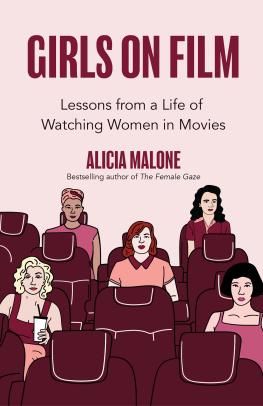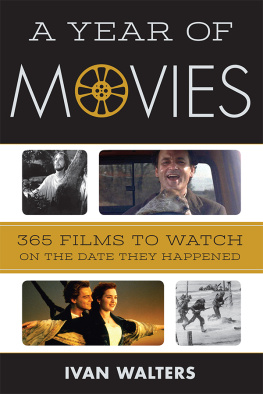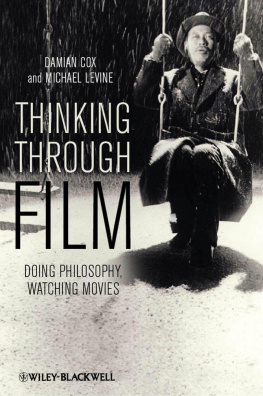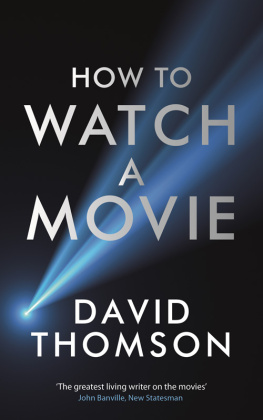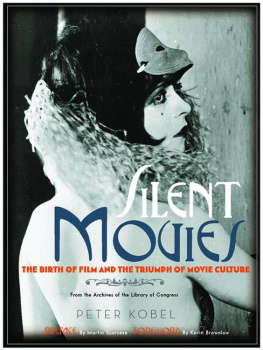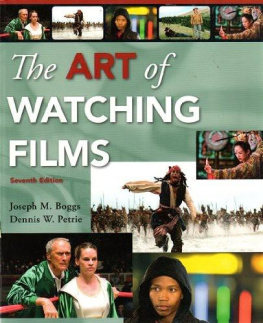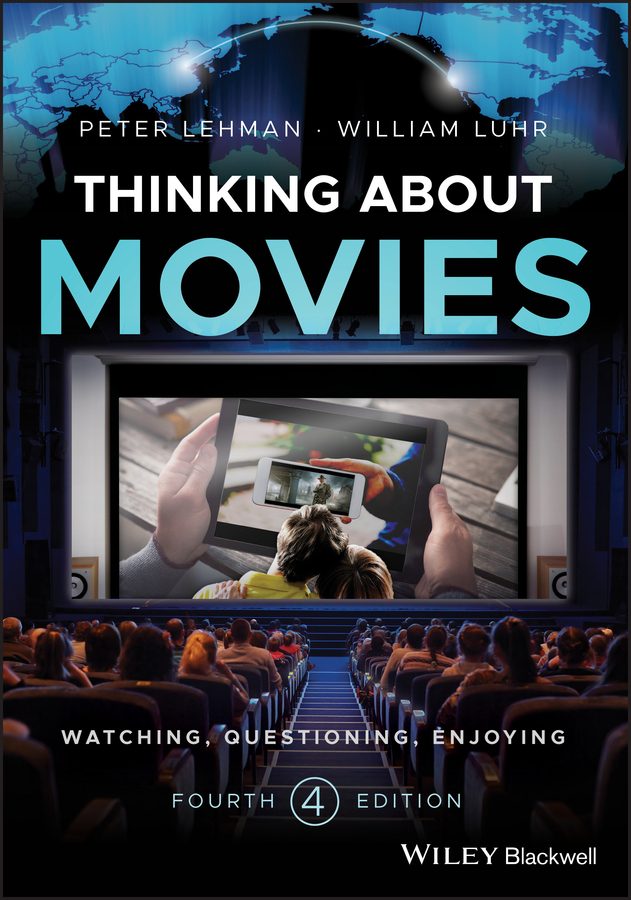Peter Lehman - Thinking about Movies: Watching, Questioning, Enjoying
Here you can read online Peter Lehman - Thinking about Movies: Watching, Questioning, Enjoying full text of the book (entire story) in english for free. Download pdf and epub, get meaning, cover and reviews about this ebook. year: 2018, publisher: Wiley, genre: Art. Description of the work, (preface) as well as reviews are available. Best literature library LitArk.com created for fans of good reading and offers a wide selection of genres:
Romance novel
Science fiction
Adventure
Detective
Science
History
Home and family
Prose
Art
Politics
Computer
Non-fiction
Religion
Business
Children
Humor
Choose a favorite category and find really read worthwhile books. Enjoy immersion in the world of imagination, feel the emotions of the characters or learn something new for yourself, make an fascinating discovery.

- Book:Thinking about Movies: Watching, Questioning, Enjoying
- Author:
- Publisher:Wiley
- Genre:
- Year:2018
- Rating:4 / 5
- Favourites:Add to favourites
- Your mark:
Thinking about Movies: Watching, Questioning, Enjoying: summary, description and annotation
We offer to read an annotation, description, summary or preface (depends on what the author of the book "Thinking about Movies: Watching, Questioning, Enjoying" wrote himself). If you haven't found the necessary information about the book — write in the comments, we will try to find it.
Thinking About Movies: Watching, Questioning, Enjoying, Fourth Edition is a thorough overview of movie analysis designed to enlighten both students and enthusiasts, and heighten their enjoyment of films. Readers will delve into the process of thinking about movies critically and analytically, and find how doing so can greatly enhance the pleasure of watching movies. Divided roughly into two parts, the book addresses film studies within the context of the dynamics of cinema, before moving on to a broader analysis of the relationship of films to the larger social, cultural, and industrial issues informing them.
This updated fourth edition includes an entirely new section devoted to a complete analysis of the film adaptation of The Girl with the Dragon Tattoo, along with many in-depth discussions of important films such as Citizen Kane and Silence of the Lambs. The chapter on television integrates a major expansion distinguishing between television in the digital era of the convergence of the entertainment and technology industries in comparison to the era of broadcast analogue television. The final chapter places film within the current context of digital culture, globalization, and the powerful rise of China in film production and exhibition.
The authors clearly present various methodologies for analyzing movies and illustrate them with detailed examples and images from a wide range of films from cult classics to big-budget, award-winning movies. This helps viewers see new things in movies and also better understand and explain why they like some better than others.
Thinking About Movies: Watching, Questioning, Enjoying, Fourth Edition is ideal for film students immersed in the study of this important, contemporary medium and art form as well as students and readers who have never taken a class on cinema before.
This new edition of the book also comes with a Companion Blog https://thinkingaboutmoviesblog.wordpress.com/ that the authors will update regularly with attention to films and industry developments directly related to each chapter, plus updates to readings and resources.
Peter Lehman: author's other books
Who wrote Thinking about Movies: Watching, Questioning, Enjoying? Find out the surname, the name of the author of the book and a list of all author's works by series.

